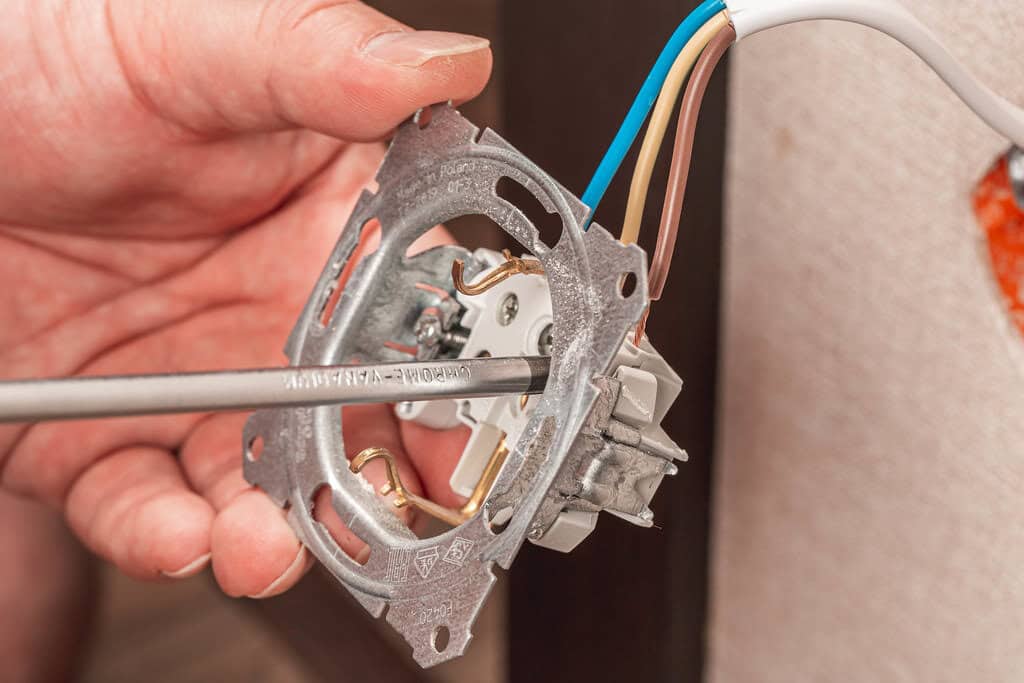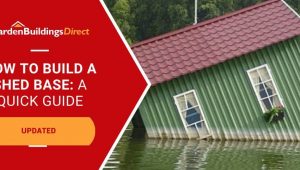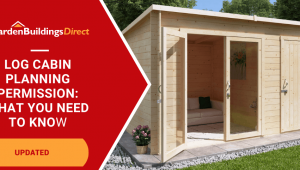Jump to:
Electricity in garden buildings powers outdoor retreats like log cabins and summer houses. It’s an important consideration in room design, but it can become complicated. Proper execution of the wiring, sockets, and switches installation is crucial. But that’s not all — the following questions below also play a major role.
1. What are your electrical needs, and how do you plan to use the garden building?

Know your specific electrical needs and the intended use of your garden building. This will help you determine the type and amount of electricity needed. It also ensures the system is well-designed and installed to meet those requirements.
For instance, you plan to use your cabin retreat for an occasional weekend getaway. You wouldn’t use electricity as much as if it’s living in a log cabin situation. Either way, there will still be appliances and electronics present. This could include lighting fixtures, entertainment devices, and heating or cooling systems. Assess the power requirements for each of these to avoid overloading circuits. It’s also best to anticipate potential future additions, like extra lighting. Plan the electrical system accordingly to accommodate these changes.
Tip: Seek advice from a professional electrician if you lack expertise in this area.
2. Have local rules for garden building electricity installation been complied with?
Did you check if you followed all the building regulations? Your compliance ensures your electrical setup meets legal requirements and prevents accidents.
Check the website of your local authority or council for information. They often provide specific electrical safety standards for your area. Or you may contact the building control department for requirements. A qualified electrician can also provide expert guidance on compliance.
Use these resources to avoid legal consequences and safety risks.
3. How will the wiring be routed and protected from weather and pests?
Tailor the approach to your specific needs for long-term safety. A professional electrician can provide customised solutions to minimise the risk of damage.
For instance, you own a summer house with a covered patio area or an extended wooden garden pergola. The electrician may route wiring along the underside of the patio or pergola roof. Weatherproof enclosures or rodent-proof conduit are likely to be used. Outlets and fixtures could also be installed with waterproof covers.
Now, what happens if the wiring isn’t routed and protected properly? It becomes vulnerable to weather damage. Exposure to rain and snow can cause moisture to seep in, leading to short circuits. Pests like rodents, insects, and birds may chew on or nest within the wiring. All of which can cause electrical faults, system failures, and safety hazards.
4. Have you considered the future maintenance and accessibility of the electrical system?
Say you’re working with an expert in your garden building, which will be used as a home office. You’ll want to ensure that your electrical system remains functional and safe over time.
During the initial consultation, discuss your long-term plans and concerns with the electrician. Prioritise easy access to wiring for future maintenance and inspections. Collaborate to ensure that the electrical system is installed to the highest standards.
5. How many sockets and switches do you need?

There should be enough outlets to power all devices in your garden building. A skilled electrician can lend a hand in figuring out just the right amount for your needs.
You might require multiple sockets for your entertainment space. One for the television, sound system, and charging stations. You may also want separate switches for ambient or task lighting. Separate sockets for the computer and other equipment may be needed for a home office setup. Separate switches for desk lighting could be useful, too. For outdoor lighting, consider weatherproof sockets and switches.
Consider these questions to guarantee a safe and efficient garden building electricity setup. Again, if you lack expertise in this area, hire a qualified electrician to get the job done right.
Ready to install? Read our instructions on How to Run Electricity to a Shed.
If you have any further questions, please don’t hesitate to contact us at 01909 768840. Up next on your reading list: Ways to Decorate the Inside of Your Log Cabin





